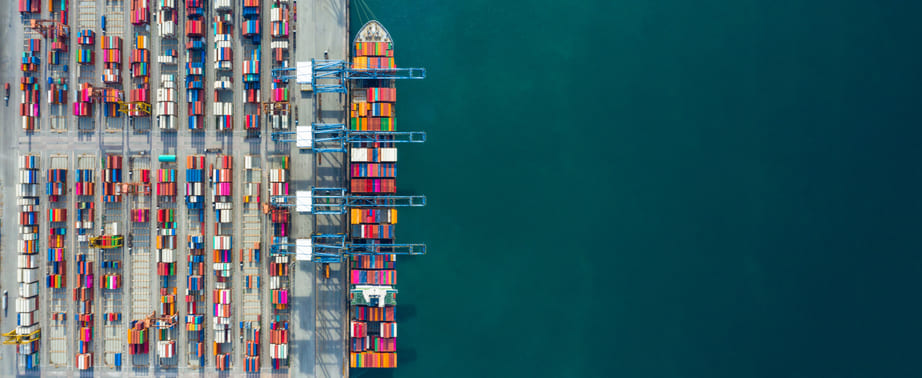The Consequences of Brexit: A Wine Importer’s Guide
The UK has left the EU. The consequences of Brexit have resulted in rule changes, customs delays, and new legal paperwork, particularly impacting importers of wine, beers, and spirits. In this brief Brexit update summary for traders, we share our quick overview of the UK Customs Declarations Service’s requirements for alcoholic beverages.
For a deeper dive into the subject, and to stay in the loop on any logistics-related Brexit news, please refer to the UK Government’s Border Operating Model. This official resource should be utilised alongside the UK trade tariffs to obtain a detailed breakdown of essential logistics and clearance information that you will need.
The biggest consequences of Brexit
One of the most significant consequences of Brexit is the introduction of customs barriers between the UK and the EU. This has led to a surge in paperwork and administrative hurdles for businesses engaged in cross-border trade. Overlooking or misunderstanding these requirements can result in costly fines, delays, and, in severe cases, the confiscation of your wine, beer, and spirits.
The role of Customs Declaration Service in post-Brexit trade
The Customs Declaration Service is pivotal in the post-Brexit trade landscape. It provides a centralised platform for importers to manage their customs declarations efficiently. By utilising the Customs Declaration Service, importers can expedite the customs clearance process, mitigate the risk of errors, and ensure compliance with the latest regulations. This, in turn, contributes to the overall efficiency of the supply chain and minimises disruptions in the importation of alcoholic beverages.
Navigating the UK customs declaration process
Hillebrand Gori recognizes that importers may face challenges navigating the consequences of Brexit, especially in the customs declaration process. In simple terms, a customs declaration is a formal statement submitted to customs authorities, providing details about the goods being imported or exported. This declaration is essential for customs clearance and determines the applicable duties and taxes.
The first step is understanding what information is required. This includes details about the goods, their origin, value, and the applicable Harmonized System (HS) code. Once armed with this information, importers can submit the customs declaration through the Customs Declaration Service. This online platform streamlines the submission process, providing a centralised hub for managing customs declarations efficiently.
Key Brexit updates
Remember that failure to comply with both EU and UK Brexit regulations will result in refused shipments, delays and hefty costs.
Key Brexit Regulation Update #1 - Pallets
Since the 1st of January 2021, only fumigated and treated stamped wooden ISPM pallets and cases are permitted for import/export with the UK. Compliant pallets will bear the following stamp:
Key Brexit Regulation Update #2 - Tariff Changes on Goods
Import and export tariffs have changed on many types of goods due to the consequences of Brexit. The main products of interest are excise goods, which include alcohol (There are notable higher tariffs for importing wine originating from Europe). For the full list of Brexit tariff changes, please refer to the Government's updated list of new UK trade tariffs. There are also new marking, labelling and marketing standards that must be followed since the 1st of January 2021.
Key Brexit Regulation Update #3 - EORI Numbers and New Brexit Customs Paperwork
Economic Operators Registration and Identification (EORI) Numbers are issued by Customs to identify traders throughout the EU, and are required in the new import and export documents. EORI numbers are already used for trading with other international countries, and since the 1st of January 2021 they are an essential legal requirement for import and export to and from the UK.
Other important Brexit paperwork can include eAD (EMCS) and Export Declaration and Transit documents. Ensure you clarify your specific requirements thoroughly with an external customs advisor such as our in-house customs team here at Hillebrand, if in any doubt. For a more detailed Brexit regulation change overview, please refer to our import and export checklist below, as well as the Government’s official page for the new import licences. Further essential reading to prepare for importing or exporting to and from the UK can be found by following those respective links.
Key Brexit Regulation Update #4 - No More Deferred Clearances and GVMS Registration
Since 1st January 2022, UK customs declarations are required for all imports from the EU, and deferred clearances are no longer possible. Registration with the Goods Vehicle Movement Service (GVMS) is also required for imports into the UK via truck.
Key Brexit Regulation Update #5 - Postponed VAT Accounting is Still Available
Since 1st January 2024, importers can still take advantage of postponed VAT accounting, which allows you to pay the VAT at a later date so long as goods are accounted for when entering the UK. Goods that qualify for the Rules of Origin (RoO) may be duty-free when trading between the UK and EU, so long as the correct paperwork is provided to claim this preferential rate of duty.
Key Brexit Regulation Update #6 - Pint-Sized Wine Bottles Can Be Sold in the UK
Since 1st January 2024, businesses have been permitted to import and sell wine in 200ml, 500ml, and 568ml (pint-sized) bottles. New wine labelling rules require that imported wine must show the name and address of a UK-based business.
Let Hillebrand Gori handle all your Brexit imports
Hillebrand handles over 16,000 cargo entries into the UK every single month, and our customs team already manages a quarter of a million clearances per year. We’re one of the most experienced UK customs handlers in the world, operating at all major UK ports in close ties with port operators, HMRC and Border Force. As we are a registered HMRC trusted trader, our cargo skips the long checking process in the ports and normally clears within the hour. Our global IT platform also means all customer cargo and customs information is conveniently and securely stored in a single database.
In addition to handling all UK Customs Declaration Service requirements, Hillebrand Gori offers temperature-controlled vehicles and insulation liners to protect the quality of your wine, beer, and spirits during transport. With the myHillebrandgori app, you can track and manage your shipments in real time. Contact us today for a quote and learn more about how Hillebrand Gori can help you sail as smoothly as possible through the consequences of Brexit.
Published 30th January 2020, updated 26th February 2024
Most of the wine imported to the UK comes from France or Italy. Other major wine exporters to the UK include New Zealand, Australia, Spain, and Belgium.
During the Brexit transition phase, UK–EU trade declined by 10- 15%. The effect was greater on UK imports than exports. During the same time, intra-EU trade increased, suggesting that trade with the UK was redirected to other EU members.
In the UK, the duty for wine containing 11.5%-14.5% ABV (alcohol by volume) is £2.67 plus VAT per bottle. The rates of duty for alcohol are listed on the UK government’s website.
The consequences of Brexit have contributed to increases in the shelf price of wine, beer, and spirits in the UK. The total value of wine exports from the UK dropped significantly after 2019, and the cost of a bottle of wine has increased by about £1.50 (€1.77) since before Brexit. Other factors, such as the COVID-19 pandemic, have also contributed to higher prices.
How can we help your business grow?

.png?sfvrsn=cb1fc0fd_1)



